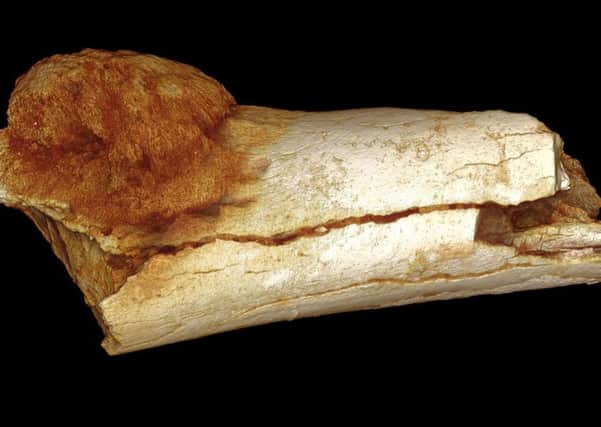Lancashire scientist finds oldest ever cancer


Researchers discovered signs of osteosarcoma, an aggressive form of bone cancer, in a metatarsal - one of the five long foot bones that connect to the toes - in South Africa.
Experts do not know precisely what species the bone belonged to, but are certain it was an ancient human and not an ape.
Advertisement
Hide AdAdvertisement
Hide AdThe find challenges the view that cancer is a “modern” disease linked to unhealthy lifestyles, environmental pollution and longevity.
An accompanying paper published in the same journal, the South African Journal of Science, documents an even older benign tumour.
This was found in the vertebrae of a child who lived almost two million years ago, and is the oldest tumour ever seen in a human fossil.
Both diseases were diagnosed using state-of-the-art X-ray imaging.
Advertisement
Hide AdAdvertisement
Hide AdDr Patrick Randolph-Quinney, from the University of the Witwatersrand and the University of Central Lancashire, who investigated both finds along with fellow reserachers, said: “The presence of a benign tumour i is fascinating not only because it is found in the back, an extremely rare place for such a disease to manifest in modern humans, but also because it is found in a child.
“This, in fact, is the first evidence of such a disease in a young individual in the whole of the fossil human record.”
Hannah Birkett, from the Bone Cancer Research Trust, said the find was important. She said: “Modern lifestyles and environmental factors loom large in people’s perceptions of the cause of cancer, and this finding reconfirms the importance of considering other factors such as bone growth.